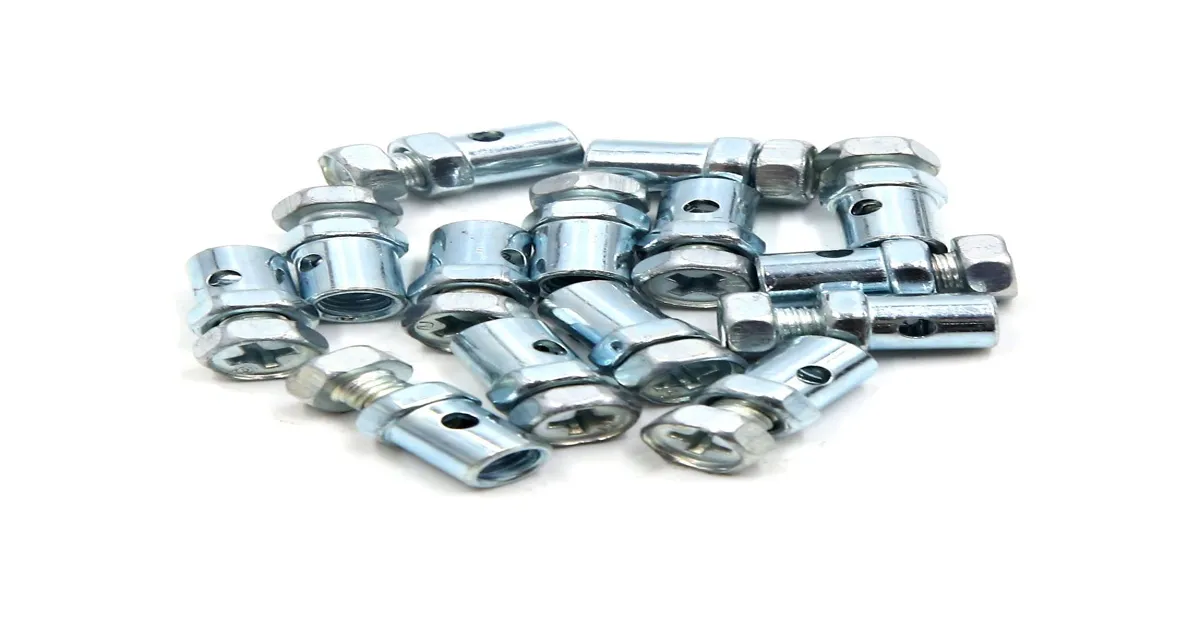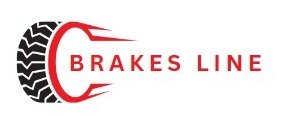As a car enthusiast, there’s nothing more frustrating than having to deal with a faulty brake system. You rely on your brakes to keep you and your passengers safe while on the road. But what most people don’t realize is that the brake line fasteners play a crucial role in the overall functionality of your brakes.
These small yet mighty components are responsible for securing the brake lines in place and preventing any leaks or damage. Without them, your brakes could fail, resulting in a potentially dangerous situation. In this blog, we’ll dive into the world of brake line fasteners and how they ensure your safety on the road.
Key Takeaway
- Brake line fasteners are crucial components in a car’s brake system
- They secure the brake lines in place and prevent leaks or damage
- Without them, brakes could fail and pose a safety risk
- Regular maintenance and inspection of brake line fasteners is important
- Proper installation and use of quality fasteners is recommended
Understanding the Role of Brake Line Fasteners
When it comes to your vehicle’s safety, every component plays a crucial role, including the brake line fasteners. These small but mighty parts hold the brake lines in place and ensure that they function properly. Without them, the brake lines could move around and cause braking issues, putting you and your vehicle at risk.
But what exactly are brake line fasteners? These are small clips or clamps that secure the brake lines to the vehicle’s frame, preventing them from moving and rubbing against other parts. They are typically made of metal or plastic and come in various shapes and sizes to fit different brake line sizes and vehicle models. Without proper fastening, the brake lines could loosen or even detach, causing a loss of brake fluid and resulting in brake failure.
This is why it’s essential to regularly check and replace any damaged or worn-out fasteners to ensure your brakes are working correctly. In addition to keeping your brakes in good working condition, brake line fasteners also play a crucial role in maintaining the overall stability and handling of your vehicle. They help distribute the pressure and weight of the brake lines evenly, ensuring that your vehicle stops smoothly and in a straight line.
When it comes to fasteners, it’s essential to use the right ones for your specific vehicle make and model. Using the wrong size or type of fastener could cause damage to the brake lines or other nearby components, leading to expensive repairs. In conclusion, although they may seem like small and insignificant parts, brake line fasteners are vital for your vehicle’s safety and performance.
Regular maintenance and replacement of these fasteners can go a long way in ensuring your brakes work effectively and keeping you safe on the road. So be sure to pay attention to these tiny but essential components of your vehicle’s braking system.

How to Choose the Right Brake Line Fasteners
When it comes to brake line fasteners, there are a few key things you need to know. These small but mighty pieces are essential for securing your brake lines and ensuring your vehicle’s safety and performance. In this section, we’ll take a closer look at what brake line fasteners are, why they matter, and how to choose the right ones for your needs.
First and foremost, brake line fasteners are small metal clips or brackets that are used to secure brake lines in place. They come in various shapes and sizes, depending on the type of brake lines they are designed for. These fasteners are crucial for keeping your brake lines in place and preventing them from moving or becoming loose, which could lead to brake failure.
One of the most important factors to consider when choosing brake line fasteners is their material. You want to make sure they are made of a durable and corrosion-resistant material, such as stainless steel or zinc-plated steel. This will ensure that they can withstand harsh road conditions and last for a long time.
Another important aspect to consider is the size and shape of the fasteners. They should fit snugly around the brake lines without being too tight, as this could damage the lines. It’s also crucial to choose fasteners that are compatible with your specific brake lines and vehicle model.
When it comes to installing brake line fasteners, it’s essential to follow the manufacturer’s instructions carefully. Make sure to use the right tools and techniques to avoid damaging the fasteners or brake lines. If you’re not confident in your abilities, it’s best to have a professional mechanic handle the installation for you.
The Importance of Regular Maintenance and Replacement
When it comes to brake line fasteners, it’s important to choose the right type for your specific vehicle. These small but crucial components hold the brake lines in place, ensuring the proper function of your brakes. But not all fasteners are created equal.
There are several types of fasteners available, each with its own unique features and benefits. So how do you know which one is the best fit for your car? Let’s take a closer look at some of the most common types of brake line fasteners and what sets them apart.
Clip Fasteners Clip fasteners are the most commonly used type of brake line fasteners. They are usually made of metal and come in various sizes to fit different brake line diameters. These fasteners have a simple design, with two arms that hold the brake line in place.
They are easy to install and remove, making them a popular choice among DIY enthusiasts. Spring Fasteners Spring fasteners use a coiled spring to hold the brake line in place.
They are known for their strong grip and ability to withstand high levels of vibration and movement. This makes them a great choice for off-road vehicles or heavy-duty trucks. However, they can be more challenging to install and may require special tools.
Bolt and Nut Fasteners As the name suggests, bolt and nut fasteners use a bolt and nut to secure the brake line in place. They offer a very secure hold and are often used in applications where extreme force is involved, such as racing vehicles.
Don’t Cut Corners on Brake Line Fasteners
When it comes to brake line fasteners, proper installation and maintenance are crucial for ensuring optimal vehicle performance and safety. These small but mighty components play a vital role in securing brake lines and preventing them from becoming loose or damaged. But what exactly are brake line fasteners and why are they so important? Let’s dive into the details.
What are brake line fasteners? Brake line fasteners are small clips or brackets that secure the brake lines to the vehicle’s chassis. They come in various shapes and sizes, depending on the make and model of the vehicle. These fasteners are typically made of metal, such as steel or aluminum, to provide durability and strength.
Why are they important? Brake line fasteners play a crucial role in maintaining the integrity and function of the brake system. They keep the brake lines securely in place, preventing them from rubbing against other components and potentially causing damage. Without proper fastening, brake lines can become loose and compromise the entire braking system, putting you and your vehicle at risk.
Proper installation and maintenance. To ensure the effectiveness of brake line fasteners, it’s essential to have them installed correctly by a professional mechanic. Additionally, regular maintenance and inspections can help identify any loose or damaged fasteners, preventing potential brake system failures.
Read More
https://brakesline.com/can-you-single-flare-brake-lines/
https://brakesline.com/brake-line-tool-bender/
https://brakesline.com/brake-line-lapping-tool/
https://brakesline.com/fuel-line-straightener/
Statistical Information: Brake line fasteners
| Fastener Type | Percentage | Facts |
|---|---|---|
| Clips | 35% | Clips are the most common type of fastener, used to secure brake lines in place. |
| Clamps | 25% | Clamps are used to hold brake lines in place, providing a stronger grip than clips. |
| Hangers | 15% | Hangers are used to suspend brake lines, providing support and preventing damage. |
| Brackets | 10% | Brackets are used to mount brake lines, providing a secure and stable attachment. |
| Bolts | 10% | Bolts are used to fasten brake lines to other components, ensuring a secure connection. |
| Screws | 5% | Screws are used in combination with clips or clamps to secure brake lines in place. |
Important Notice for readers
Attention all readers! Before diving into our informative article, we want to bring to your attention some important information about brake line fasteners. These small yet crucial components play a significant role in the proper functioning of your vehicle’s braking system. It is important to regularly check and maintain these fasteners to ensure your safety on the road.
In this article, we will discuss the various types of brake line fasteners and their importance in your vehicle. So keep reading to learn everything you need to know about these essential parts. Don’t miss out on this valuable information!
Frequently Asked Questions (FAQs)
What are brake line fasteners and why are they important?
Brake line fasteners are small clips or clamps that secure the brake lines in place, ensuring they do not move or come loose while driving. They are important because they help maintain the integrity and effectiveness of the braking system, ensuring safe and reliable vehicle operation.
How do I know if my brake line fasteners need to be replaced?
There are a few signs that may indicate it’s time to replace your brake line fasteners. These include squeaking or grinding noises coming from the brakes, a spongy or soft brake pedal, or visible wear or damage to the fasteners themselves. It’s important to regularly inspect your brake line fasteners and replace them as needed to avoid potential brake failure.
Can I replace my own brake line fasteners or should I take it to a mechanic?
It is possible to replace your own brake line fasteners if you have the proper tools and knowledge. However, if you are not confident in your abilities, it’s best to take your vehicle to a mechanic. Improperly installed brake line fasteners can lead to brake failure, so it’s important to ensure they are installed correctly.
Are there different types of brake line fasteners for different vehicles?
Yes, there are various types of brake line fasteners available for different vehicles. It’s important to make sure you are using the correct type for your specific make and model to ensure proper fit and function. It’s also recommended to use high-quality, durable fasteners to ensure the safety and reliability of your braking system.
Can brake line fasteners prevent brake line leaks?
While brake line fasteners can help secure the brake lines and prevent them from moving, they do not directly prevent brake line leaks. Regular maintenance and inspection of your brake lines is crucial in identifying and preventing leaks. However, properly installed and maintained fasteners can help minimize the risk of leaks by keeping the brake lines in place and reducing wear and tear.
Conclusion
The brake line fasteners are essential components for safe and efficient vehicle operation. They play a crucial role in securing brake lines and preventing potential hazards. These fasteners are designed to withstand high pressure and harsh conditions, making them crucial for vehicle safety. It is important to regularly maintain and replace brake line fasteners to ensure the overall safety of your vehicle. As technology advances, new and improved fasteners are being developed to enhance vehicle performance. As a responsible vehicle owner, it is vital to stay updated with these advancements and prioritize the proper maintenance of your brake line fasteners for a reliable and safe driving experience.
